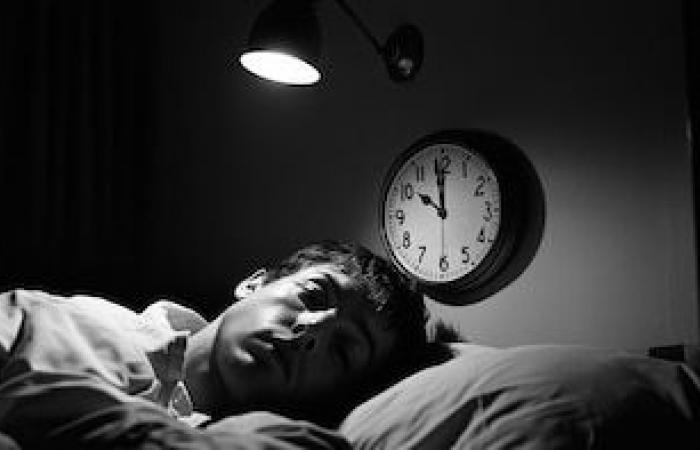In Peru, insomnia has become an increasingly common problem among the population. Political instability, constant changes of government, corruption, citizen insecurity and economic difficulties are just some of the factors that generate an environment of uncertainty and constant concern.
This situation directly affects the mental and emotional health of Peruvians, who, facing high levels of stress, anxiety and daily tension, are increasingly difficult reconcile sleep or maintain a repairing break. In addition, work pressure, unemployment and lack of access to mental health services aggravate this condition.
In this regard, we must bear in mind that, in many cases, andThe insomnia is not always an independent disorder; but appears as a symptom associated with other health conditions that it is necessary to know to seek adequate medical care.

There are at least ten diseases recognized for having insomnia as a frequent manifestation:
-- Depression: People with this disorder may present difficulties in reconciling sleep, night awakening or getting up very early.
- Generalized anxiety disorder: Constant concern and mental hyperactivity hinder the relaxation necessary to sleep, affecting the quality of rest.
- Bipolar disorder: during the manic phases, the need to sleep is reduced, and in the depressive the dream is also altered, the insomnia being a frequent symptom.
- Hyperthyroidism: The excess thyroid hormones accelerates body functions, causing agitation, palpitations and impossibility of relaxing at night.
- Parkinson’s disease: Tremors and muscle stiffness, together with alterations of the biological clock, can hinder continuous and repairing sleep.
- Dementia (including Alzheimer): People with cognitive impairment usually have changes in the circadian rhythm, which causes insomnia, night confusion and frequent awakenings.
- Fibromyalgia: Generalized muscle pain and body hypersensitivity prevent the deep phases of sleep, generating a feeling of chronic insomnia.
- Chronic obstructive pulmonary disease (COPD): Respiratory problems, such as coughing or difficulty breathing, interrupt the dream repeatedly.
- Sleep apnea: Although those who suffer from it are not always aware, the awakenings caused by breathing interruptions fragment the rest and generate fatigue.
- Gastrointestinal disorders (such as gastroesophageal reflux): The burning and discomfort when bedtime can avoid the beginning of the dream or cause multiple awakenings during the night.
Sleeping or not sleeping at all has deep consequences. In the short term, Insomnia reduces concentration, memory and decision -making capacity. Emotional, It increases irritability, anxiety and the feeling of sadness.

In the physical aspect, the lack of sleep Weakens the immune system, raises the risk of cardiovascular and metabolic diseasesand can affect hormonal balance. In addition, sustained insomnia has been associated with Greater risk of occupational accidents and traffic Due to daytime sleepiness.
When chronic, it can become an aggravating factor of pre -existing diseases, especially those related to mood and nervous system.
Addressing insomnia requires a combination of healthy habits and, in some cases, medical care. These are some fundamental recommendations:
- Maintain regular schedules: Go to bed and get up at the same time every day helps stabilize the biological clock.
- Avoid screens before sleeping: The blue light of cell phones or computers alters the production of melatonin, sleep hormone.
- Limit caffeine and alcohol: Both substances interfere with sleep quality, especially if consumed in the afternoon or night.
- Create an adequate environment: The bedroom must be dark, silent and fresh to favor relaxation.
- Practice relaxation techniques: Breathing, meditation or soft stretching exercises can facilitate sleep.
- Consult a specialist: If the insomnia is persistent, it is advisable to go to a doctor to identify if it is related to an underlying condition.









